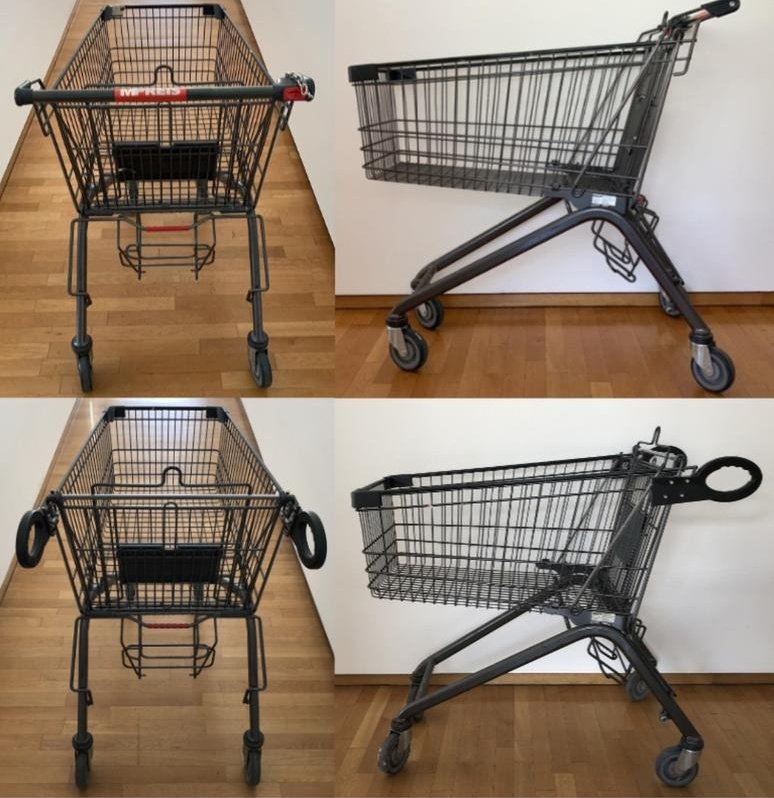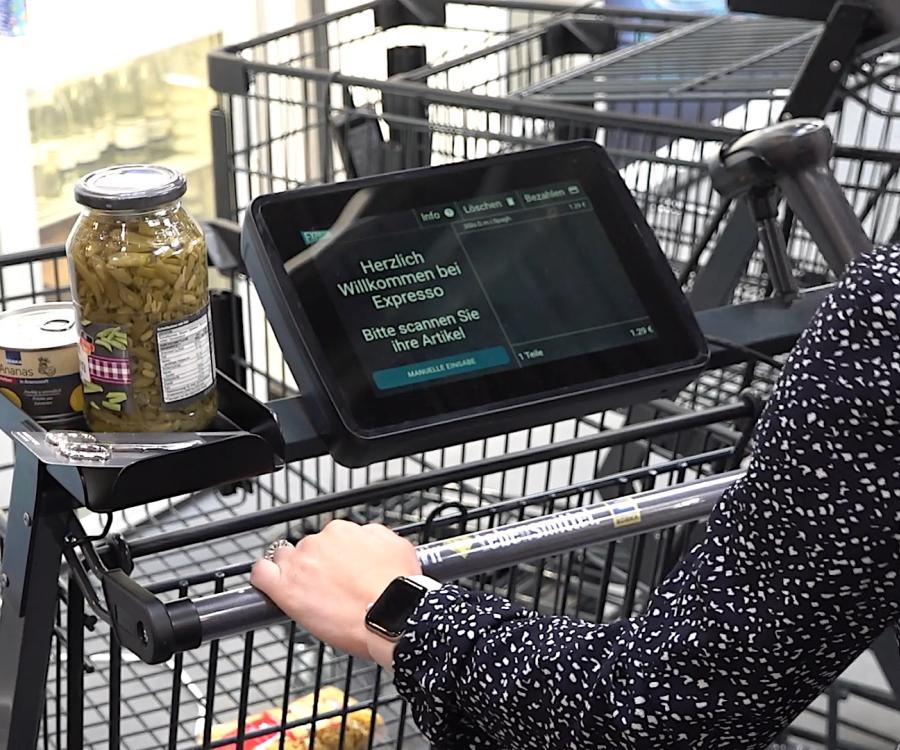
Ahead of the holiday season, new Bayes Business School research has found that repositioning the handles on trolleys could boost sales by 25 per cent for retailers.
The study, led by Bayes Business School, explores how using the standard shopping trolley with a horizontal handlebar – such as you would likely find in a supermarket – activates the triceps muscle of the arm, whereas using a newly-designed trolley with parallel handles – like that of a wheelbarrow – activates the biceps muscle. Psychology research has proven that triceps activation is associated with rejecting things we don't like – for example when we push or hold something away from us – while biceps activation is associated with things we do like – for example when we pull or hold something close to our body.
When testing the newly designed trolley on consumers at a supermarket, report authors Professor Zachary Estes and Mathias Streicher found that those who used shopping trolleys with parallel handles bought more products and spent 25 per cent more money than those using the standard trolley. The findings indicate that retailers are likely to accumulate greater sales and profits by providing customers with shopping carts with parallel handles, while consumers are likely to exercise more control over their spending if they use the standard shopping trolley. Whereas shoppers using the standard trolley spent an average of 22 Pound in store, those with a parallel trolley spent 29 Pound over the course of their visit – a difference of more than 7 Pound.
Interviews found that leading shopping trolley manufacturers had not previously considered using parallel handles on their carts and were surprised to know that the position of the handles was able to impact sales. Professor Estes, a Professor in Marketing at Bayes Business School, said: "It is shocking to find that making a small change to the position of handles can have such a large impact on shoppers' spending. Indeed, the handles literally cause us to flex our shopping muscles."




